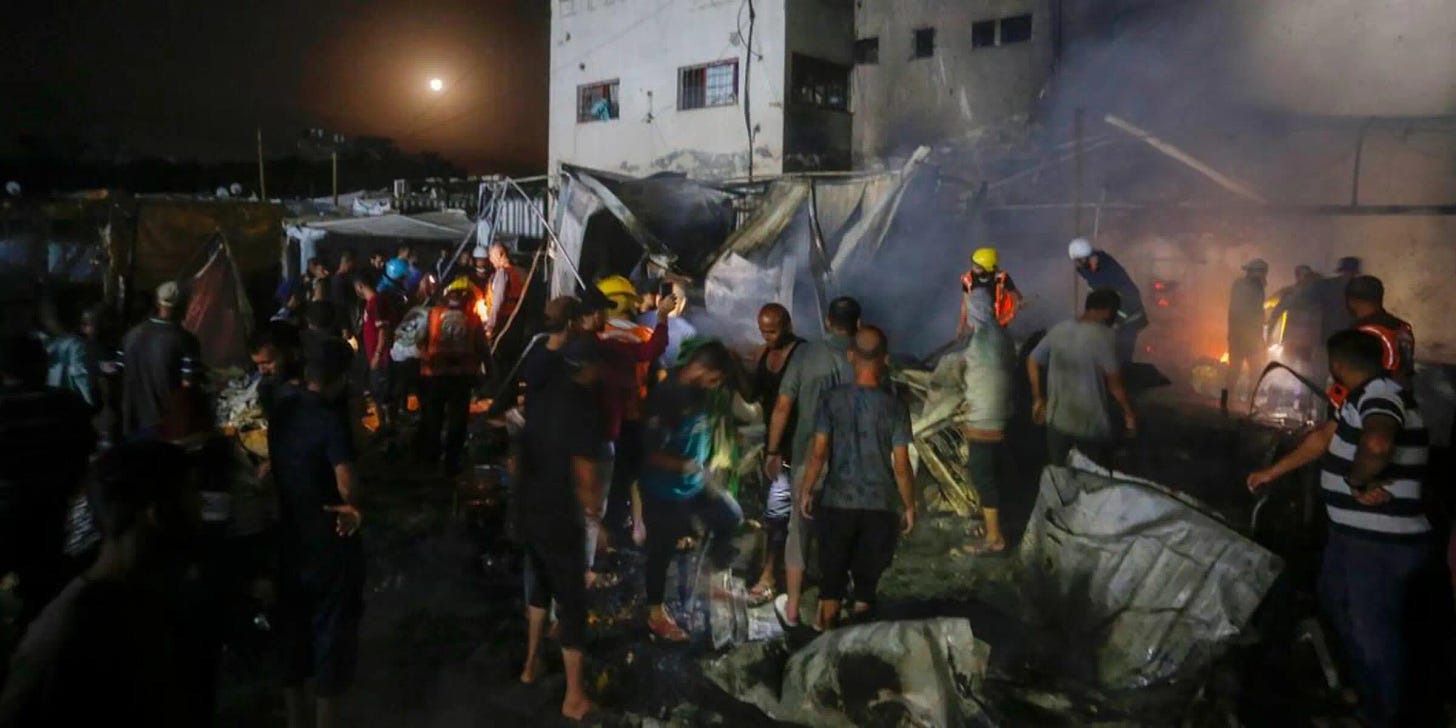Israeli Attacks on Gaza’s Hospitals
The Redefinition of Standards of Healthcare Protection in War

Israeli attacks on hospitals and other health infrastructure in Palestine and Lebanon persist, with 94% of all health facilities in the Gaza Strip being damaged since 7 October 2023, according to WHO Director-General Tedros Adhanom Ghebreyesus. Health facilities in Lebanon are also under bombardment, with recent Israeli assaults killing at least two health workers and injuring seven more in early November.
The Palestinian Youth Movement (PYM) recently noted that Israel’s ongoing genocide in Gaza has redefined interpretations of healthcare protection at war. Initial attacks on major hospitals in Gaza, such as Al-Shifa and Al-Ahli, were accompanied by claims, although unsubstantiated, from Israeli authorities attempting to link these facilities to resistance activity. However, recent strikes on healthcare infrastructure are completely indiscriminate, with no attempt at justification. As PYM pointed out, Israel has besieged and repeatedly struck every hospital in Gaza, leaving behind destruction and mass graves. The organization added: “the notion of Israel attacking a hospital and massacring hundreds of Palestinians is so routine and expected that the US and Israeli officials hardly flinch when asked about the latest siege or massacre committed in the vicinity of what remains of Gaza’s hospitals.”
As Israeli Occupation Forces (IOF) fully besieged northern Gaza last month, the region’s three major hospitals—Indonesian Hospital, Kamal Adwan, and Al-Awda—were cut off, with humanitarian aid unable to reach them. While the WHO managed a partial evacuation of patients from Kamal Adwan, Israel blocked the delivery of essential supplies like fuel and food, forcing hospitals to ration care to just a few hours each day. An estimated 75,000 to 95,000 people in northern Gaza are now without real access to medical care, facing starvation and bombardments.
Hunger rates in Gaza have worsened further, with most people having access only to limited amounts of pulses and bread. Vegetables have essentially vanished, as have protein sources like eggs and meat. Approximately 42,000 pregnant women and tens of thousands of children are facing crisis levels of food insecurity, according to the UN Population Fund (UNFPA). Unsurprisingly, malnutrition and dire living conditions have led to a surge in mental health issues and infectious diseases. “War and disease are old friends,” Tedros observed.
UN agencies also report increases in premature births and maternal deaths, with many women forced to give birth without any medical assistance. A quarter of Gaza’s women now suffer from skin conditions, and nine in ten young children are affected by at least one infectious disease. In late October alone, over 11,000 cases of acute respiratory infections were recorded. Without basic hygiene supplies like soap, stopping the spread of these illnesses is impossible.
In conversations with local media, international health workers who recently volunteered in Gaza described the toll this situation is taking on health services. Hospitals, including pediatric wards, struggle to maintain safe conditions, as the shortage of disinfectants and equipment forces them to rely on used, contaminated supplies. Infants are sometimes exposed to drug-resistant bacterial infections, and in those cases health workers are forced to choose between putting them on ventilators and risking infecting others, or leaving them without support. “Either the baby dies because there is no ventilator, or the baby dies because of the bacterial infection,” Dr. Aman Odeh told +972 Magazine.
Collapsed health services also mean that tens of thousands of injured people—including those with severe burns and amputations—are left without access to rehabilitation or adequate care. In many cases, health workers are left with limited palliative measures to offer. “There was a day when we had nothing but gunshot wounds to the head reported to be quadcopters by witnesses. And there was nothing to do for most of them,” Dr. Mimi Syed described to reporters. “They were in palliative care because their injuries were so devastating that we had to just let them die.”




